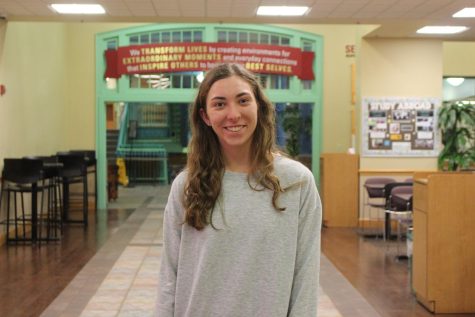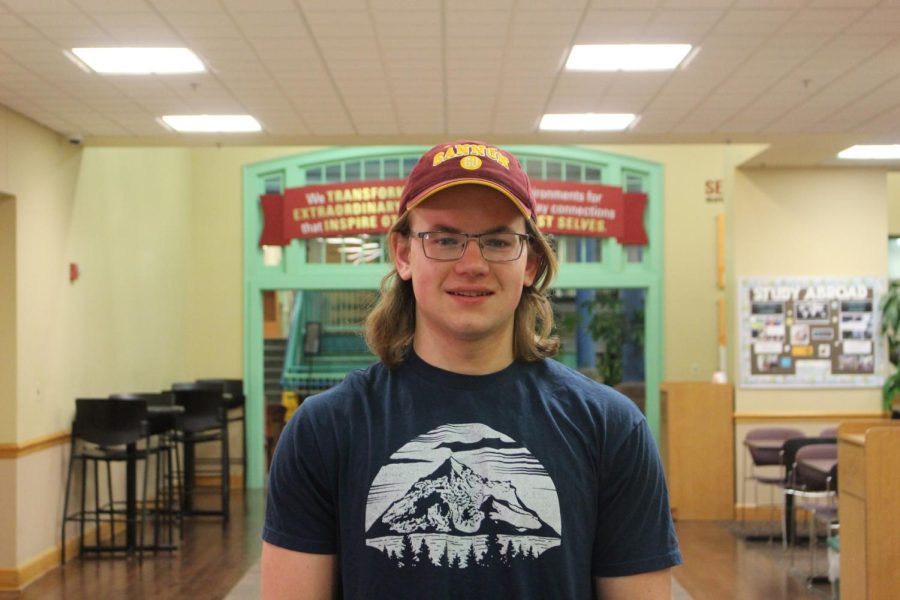Students to participate in summer program
National Science Foundation offers experience at various universities
Tim Edwards, a sophomore freshwater and marine biology and mathematics major, will be spending eight weeks at Texas State University to study algebra, combinatorics and statistics.
April 6, 2022
After finals week, many students decide to go back home, work, travel, catch up with old friends or just relax after a stressful year. But some students decide to continue learning and challenging themselves.
This summer, a group of three Gannon University students will be participating in an intensive and extremely competitive summer research program called REU, or Research Experience for Undergraduates.
Those students are Abby Palotas, a junior mathematics major; Tim Edwards, a sophomore freshwater and marine biology and mathematics major; and Jenna Sins, a junior biology major.
The program runs through the National Science Foundation and takes place on a number of university campuses.
The time that students spend at their respective temporary university will vary according to the type of research that they will be doing. Some students will spend eight weeks, while others will spend 10. No matter how long, the information and experiences will be very beneficial to their futures.
These programs range from anywhere in the STEM field, and Gannon’s participants will be involved in the biology and mathematics program.
Palotas will attend the University of Pittsburgh and be involved in the TecBio program.
Palotas said the program “focuses on computational biology, which often involves mathematical modeling of biological systems.”
The exact details of the program have not been outwardly stated, but students are prepared for whatever.
Palotas participated in an NSF program last year, through Arizona State University, and was pleased with the experience, given her math major and biology minor.
“I was intrigued to apply to the program because I have struggled to narrow down my interests, and a field such as computational biology seemed like a great way to incorporate both math and biology,” she said.

During her last program, titled Quantitative Research for the Life and Social Sciences Program, or QRLSSP, Palotas and her group worked on a project that modeled multidrug-resistant tuberculosis in India.
This summer will be Edwards’ first REU, and he will be spending eight weeks on the Texas State University campus.
Edwards’ program will focus on three main topics — algebra, combinatorics and statistics. He will be working in one of the algebra groups, which will consist of two other undergraduate students and their faculty adviser.
The goal of Edwards’ group will be to conduct research and obtain enough novel findings to publish a paper. In addition, they hope to possibly have the chance to travel to various conferences and present their results.
Sins, meanwhile, will participate in a program with the Boyce Thomas Institute, which will be located at Cornell University.
Sins’ program, referred to as the Li lab, will primarily research plants and the impact they have on humans.
“This program will help me because I will be learning lots of genomics and bioinformatics, which I can use as research experience when I apply to med school and MD/Ph.D programs,” she said.
The research these students are doing will not only look good on a resume, but it will yield a plethora of new information along with aiding in potential applications to advanced programs.
These summer programs are very difficult to get into. Sims, for example, said she applied to 15 programs because they are so competitive.
“It may be time-consuming,” she said, “but the experience will pay off in the end when applying to grad school or other research programs.”
MOLLY BEGEMAN




